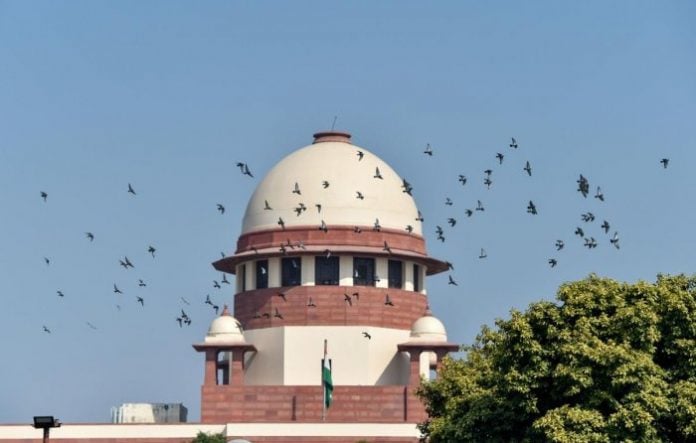The Supreme Court today (July 7), gave the Centre a month’s time to implement its February verdict that granted permanent commission to women officers in the Indian Army.
On February 17, the court had ordered the Centre to grant permanent commission, respecting a 2010 order of the Delhi High Court in this regard and had also ruled that women officers can get “command and criteria” appointments in the Army on a par with their male counterparts. It had said that permanent commission has to be provided to all women officers in the Army regardless of their years of service, and had told the Centre to implement this in three months.
Citing the COVID-induced lockdown, the Centre requested the Supreme Court to allow it six more months in granting permanent commission to eligible women officers in the army and also in making provisions for them in command posts.
In an application, the Ministry of Defence said: “The applicants have commenced the process of substantial compliance of the directions issued by this court, in earnest and in letter and spirit. However, in view of the corona pandemic and the ensuing lockdown coupled with exigencies of service, the applicant has not been able to complete the same and requires some more time to complete the entire process.”
A bench of Justices D Y Chandrachud and Indu Malhotra said the Centre will have to comply with all the directions in the verdict. The Centre told the bench that decision making on the issue is at a final stage and only formal orders remain to be issued. It said the court’s verdict will be complied with in letter and spirit.
Senior lawyers Meenakshi Lekhi and Meenakshi Arora, who appeared for women Army officers, expressed their concerns about the government trying to overreach the court. They alleged that the Army had reintroduced certain physical criteria – discontinued in 2011 – in an attempt to deny women officers who have been in service for more than 10 years the benefits of permanent commission.
After Balasubramanian submitted that the government was not trying to overreach the court’s orders and said it would comply with them in letter and spirit, the court took it on record and gave the Centre a month’s time.
An ‘evolutionary process’
In February, the Supreme Court had said that the recruitment of women in the Armed Forces is an “evolutionary process” and added that the policy decisions of the Centre regarding the employment of women officers were “very unique”.
The order castigated the government for submitting a note portraying women as physiologically unfit for answering the “call beyond duty” of the Army. It said that the Centre’s note perpetuated sex stereotypes. “Arguments by the Centre founded on physical strength of men and women and grounds of motherhood, family etc violates equality,” the judgement said. “To cast aspersions on ability of women and their role and achievements in Army is an insult not only to women but also to Indian Army.”
During the hearings, Justice Chandrachud had remarked that even if women were less fit for combat roles, these were only a tiny fraction of roles in the Armed Forces, and women can thus be given permanent commission in other roles. “Two things are required to rid any form of gender discrimination – administrative will and change in mindset,” he added.
The government had also argued in court during the hearings that since the Army rank and file is predominantly male and drawn from the rural areas, soldiers are not yet mentally schooled to accept women officers in command.
The Government had approved permanent commission for women in all 10 branches of the Army in March last year. Under the scheme, the women officers should indicate within four years of service whether they want permanent commission.
In 2010, the Delhi High Court had ruled that compulsory retirement for women officers after 14 years was unconstitutional in all three services of the military – Army, Air Force and Navy.
-India Legal Bureau


